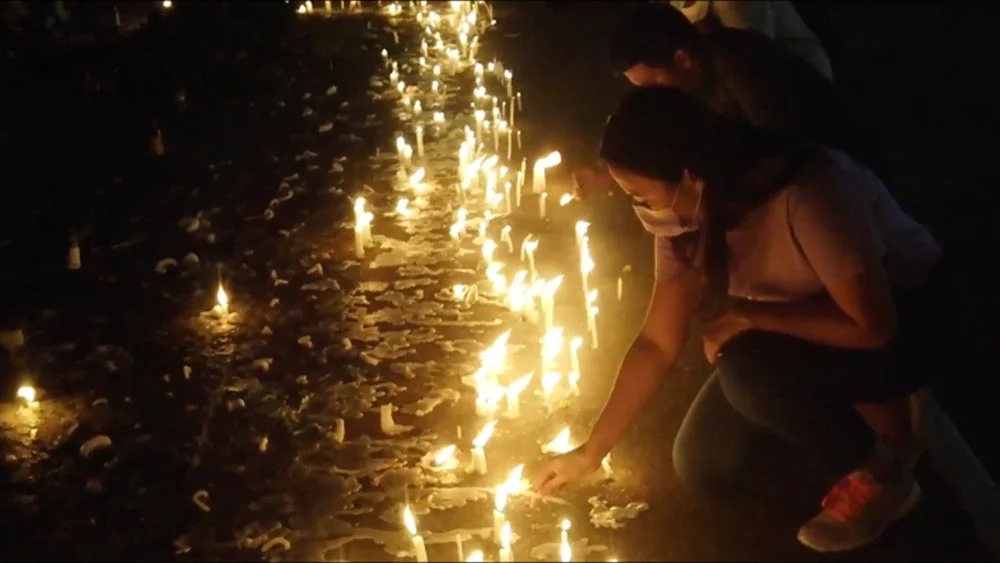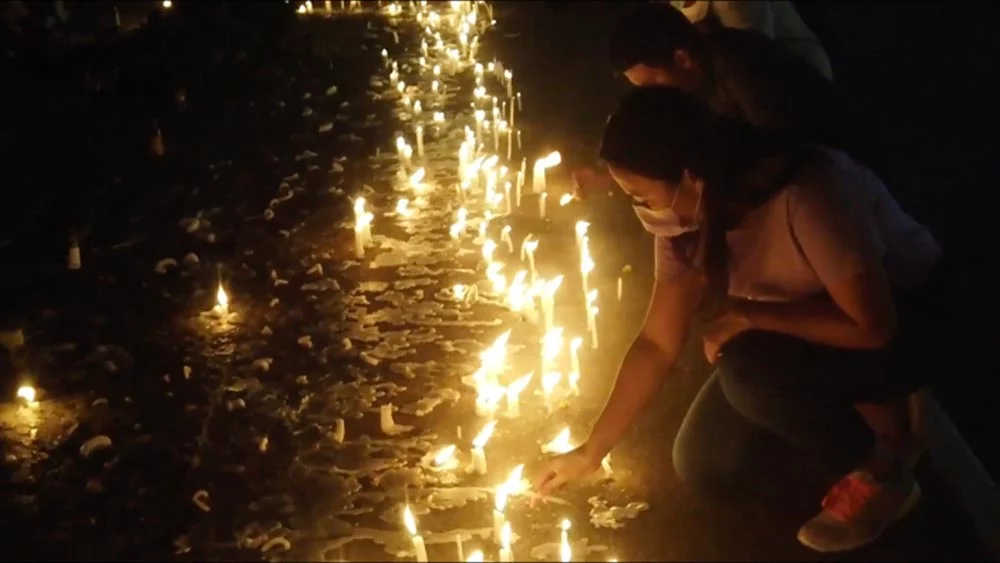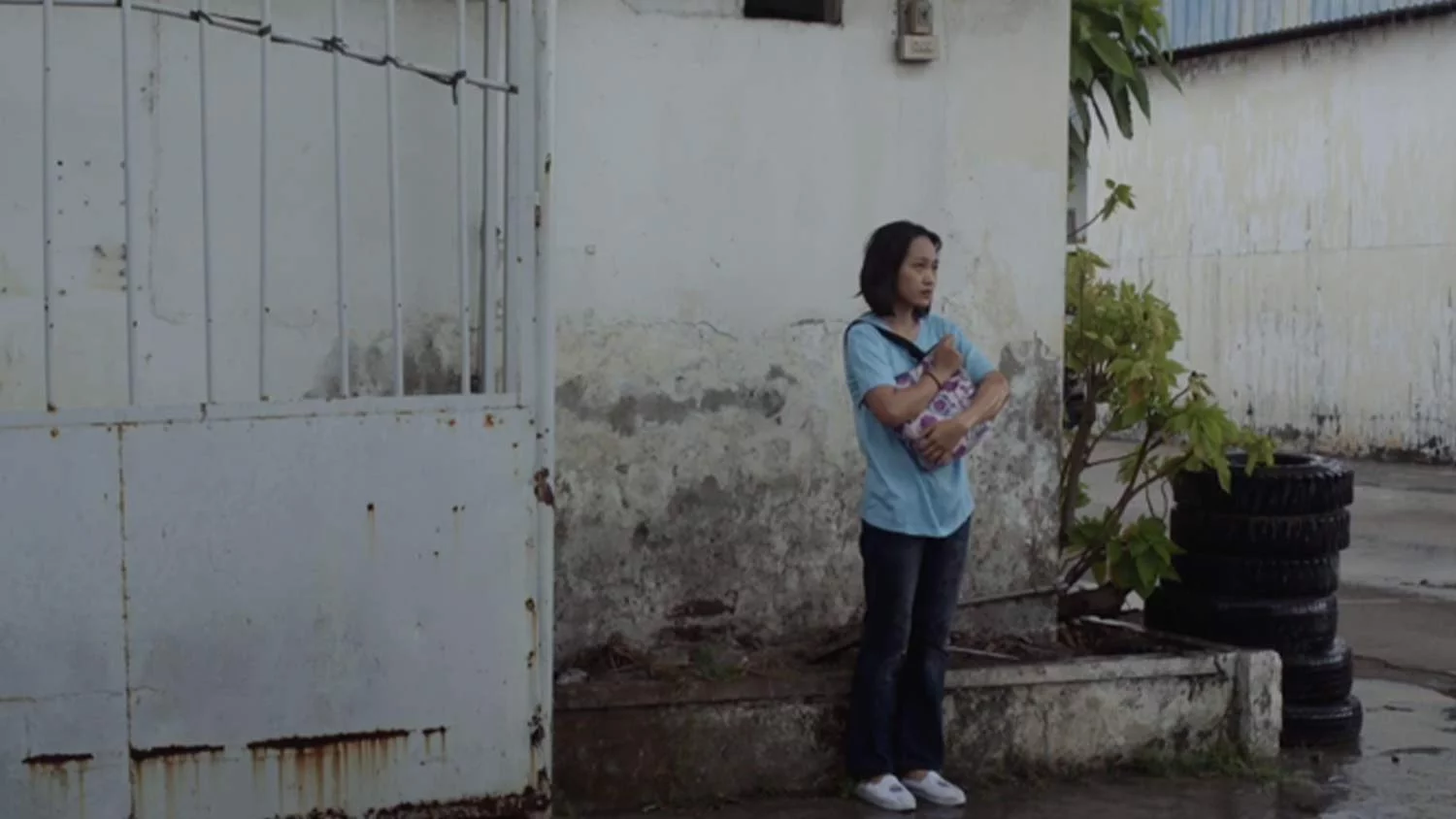Displacement and Sense of Belonging in Film: An SGIFF Exploration
By Ahaan Arora

In this year’s Singapore International Film Festival, the Southeast Asian Short Film Competition showcased a collection of films that were powerful in their own right. There were many that stood out, some more personally resonant to the youth critics. A notion that particularly struck a chord in me was that of displacement in society. With the prevailing conditions of the coronavirus disease, the choice to address this theme was, at face value, fitting. This conceptual framework on which this analysis stands is communally shared amongst three distinguished short films: ‘February 1st’, ‘You Are 56, Still Counting and Keep Counting; I am 25’ and ‘Elephants in the City’. Complementing this theme of disconnection, the films have their own unique vibrations. These include political undertones, reflective introspection and personal subjectivities.

Still from February 1st
The films February 1st and You Are 56, Still Counting and Keep Counting; I am 25 (abbreviated to You Are 56) share an epistolary quality which acts as a stylistic device to present the idea of belonging. The former film serves as an audiovisual account of an epistolary correspondence between a pair of Burmese and French filmmakers about their relationship with Myanmar, against the backdrop of the 2021 military coup. The aforementioned idea of belonging stems from the connection that the respective protagonists feel with their external surroundings. In February 1st, the Burmese woman, Mo Mo, feels oppressed by the military coup and hence, her sense of belonging is adversely impacted. Conversely, the French woman that she communicates with, Leïla Macaire, feels a significant sense of liberty and power being in Myanmar as opposed to Paris. The employment of imagery showing parades protesting for democracy within Mo Mo’s account, demonstrates the extent of political unrest. Simultaneously, the use of imagery showing people and landscapes in its simplicity from Macaire’s non-native perspective, demonstrates an unimpeded solitude.
In the film You Are 56, the approach to the notion of belonging is similar to that of Mo Mo’s in February 1st, but explored in depth through physicality and introspection. This film is composed of a narrated recitation dedicated to the protagonist’s mother, with a sustained dance performance within changing scenery. While the former film makes use of mutual conversation, the latter is unidirectional in its epistolary form. You Are 56 employs voiceover while the protagonist’s physical movement persists from a natural to urban landscape. An immigrant from Malaysia, Xin Yen (the protagonist) navigates terrains of her youth, with motions and gestures like that of an alien. The juxtaposition between reminiscent narration and alien-like movement constructs an abstraction. This abstraction may be interpreted as Xin Yen’s attempts to make sense of her surroundings, being a Malaysian Chinese person in Singapore, albeit through expressionist means. Thus, the idea of belonging is unique to each of the personas within these two short films.

Still from You Are 56, Still Counting and Keep Counting; I am 25
The short film Elephants in the City acts as a study of human relationships amidst urbanisation in Vietnam. In this film, a young woman meets up with a former lover in the zoo while a married teacher juggles an affair with a security guard. In reference to the main theme behind this essay, there is a noteworthy line uttered at the beginning. This line states that the zoo environment “is better” for elephants than the wild. Given the context of this film, with women working in a jeans factory and urbanisation, there is evident exploitation of workers taking place. Furthermore, there is a recurring motif in this film with the imagery and the reference to shoes. For example, there is an instance where a young woman recounts dropping a shoe in the river and not being able to find it. Another scene shows a young man giving small and dainty shoes to a woman (who he is having an affair with) for her daughter. The disposability of shoes as mass consumer products may be interpreted as commentary on urban consumption patterns. Therefore, the question that elephants are being taken from their habitats and made use of in zoos, just as humans are exploited by growing urbanisation and overarching capitalism, may arise. That the labourers are within this setting gives rise to the thought that people are in their own zoos. This parallelism creates an irony with reference to the idea about elephants benefiting from living in zoos which is presented at the beginning of the film. This is because the factory labourers are under compensated. Are the elephants wrongly placed in the zoo? Or are they, as stated in the film, better suited to it in comparison to the wild? Finally, this short film can be compared with You Are 56, with the elephants serving as an analogy for the latter film’s protagonist. This is in the sense that the elephants are in a new setting and away from home.

Still from Elephants in the City
What is home? Or the emotional meaning of home? According to poet Robert Frost, “Home is the place where, when you have to go there, They have to take you in”. The three films explored this idea of home in their own characteristic ways. In February 1st, Mo Mo feels displaced due to the military launching a coup d’état in Myanmar. According to the social displacement perspective in sociology, instead of transforming herself emotionally, psychologically, or culturally in order to learn to fit into her ‘inferior’ social position, she feels an obligation to fight for her home country (Smith). This is demonstrated in many subjective point of view shots during the film, such as the showing of the three-finger salute and the waving of longyis on sticks. On the other hand, Macaire feels that Myanmar is a place that she can depend on to feel a sense of security and inner strength. In Elephants in the City, the idea of home is made contentious with the argument put forth that elephants are better adapted to the zoo setting than their habitats. This allows the audience to debate this assertion within different contexts and approaches. In the short film You Are 56, the protagonist’s sense of home is being breached as she is in a new setting. She reminisces over her childhood while dancing in a Singaporean setting. This may elicit elements of pathos from the viewers as a consequence. One may argue that Xin Yen distances herself from human-like behaviour in her dance to act in a way that best corresponds to her mentality towards her surroundings; a means of adapting and escaping simultaneously.
This year’s collection of short films presented by the Singapore International Film Festival provided a look at strong voices from Southeast Asia. Having intellectual discourse in relation to what makes a film exceptional cultivated further appreciation for this medium and its means of expression. Film, after all, is a language and medium that forces people to look beyond and to look at the world we live in through different lenses and perspectives. In the youth jury’s viewings and passionate discussions of the films presented before us, we found a place to bond in our appreciation for cinema.
Works Cited
Smith, Dennis. Social Fluidity and Social Displacement. 2010.

